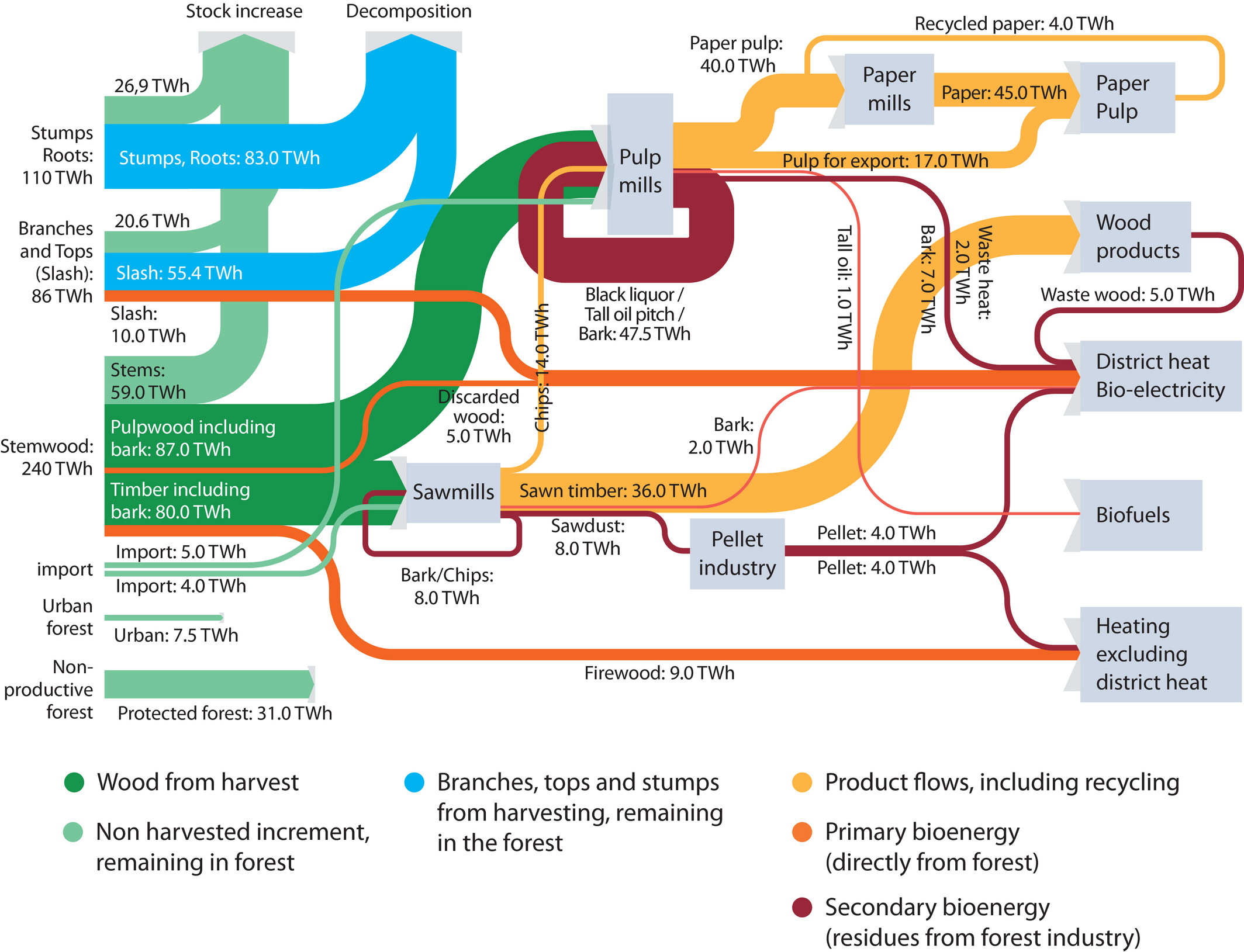Applying a science-based systems perspective to dispel misconceptions about climate effects of forest bioenergy
Global Change Biology Bioenergy, available open access here
The scientific literature contains contrasting findings about the climate effects of forest bioenergy, partly due to the wide diversity of bioenergy systems and associated contexts, but also due to differences in assessment methods. The climate effects of bioenergy must be accurately assessed to inform policy-making, but the complexity of bioenergy systems and associated land, industry and energy systems raises challenges for assessment. We examine misconceptions about climate effects of forest bioenergy and discuss important considerations in assessing these effects and devising measures to incentivize sustainable bioenergy as a component of climate policy. The temporal and spatial system boundary and the reference (counterfactual) scenarios are key methodology choices that strongly influence results. Focussing on carbon balances of individual forest stands and comparing emissions at the point of combustion neglect system-level interactions that influence the climate effects of forest bioenergy. We highlight the need for a systems approach, in assessing options and developing policy for forest bioenergy that: considers the whole life cycle of bioenergy systems, including effects of the associated forest management and harvesting on landscape carbon balances; identifies how forest bioenergy can best be deployed to support energy system transformation required to achieve climate goals; and incentivizes those forest bioenergy systems that augment the mitigation value of the forest sector as a whole. Emphasis on short-term emissions reduction targets can lead to decisions that make medium- to long-term climate goals more difficult to achieve. The most important climate change mitigation measure is the transformation of energy, industry and transport systems so that fossil carbon remains underground. Narrow perspectives obscure the significant role that bioenergy can play by displacing fossil fuels now, and supporting energy system transition. Greater transparency and consistency is needed in greenhouse gas reporting and accounting related to bioenergy.

Biomass and energy flows from Swedish forest
Source: IRENA, 2019


